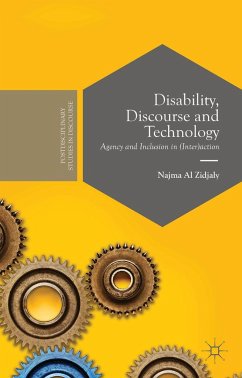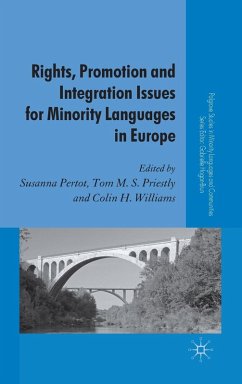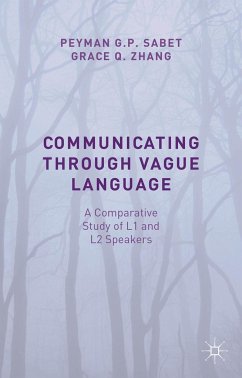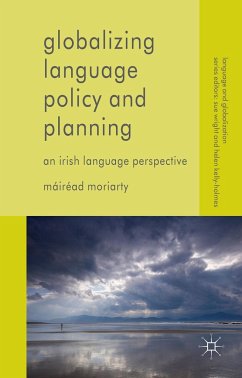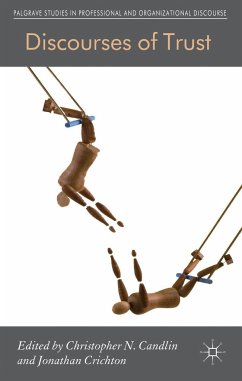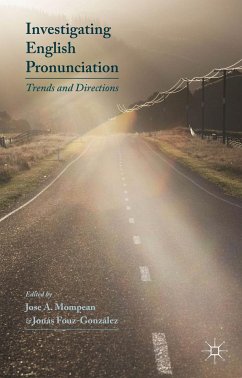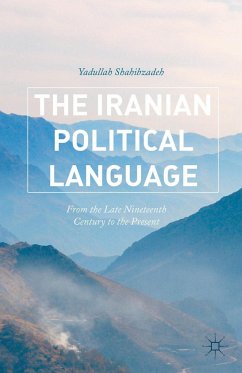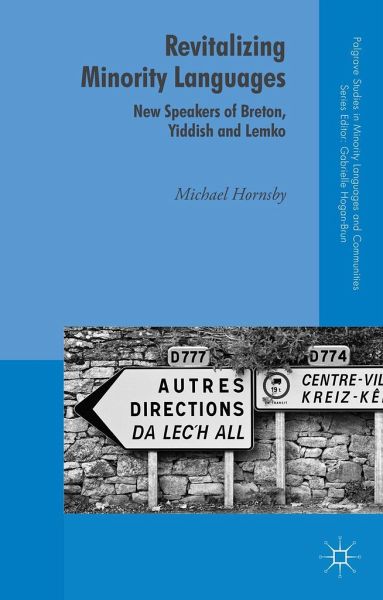
Michael Hornsby
Gebundenes Buch
Revitalizing Minority Languages
New Speakers of Breton, Yiddish and Lemko
Versandkostenfrei!
Versandfertig in 6-10 Tagen
Weitere Ausgaben:

PAYBACK Punkte
19 °P sammeln!





New speakers are an increasingly important aspect of the revitalization of minority languages since, in some cases, they can make up the majority of the language community in question. This volume examines this phenomenon from the viewpoint of three minority languages: Breton, Yiddish and Lemko.
Michael Hornsby is currently a visiting professor in the Department of Celtic languages and literatures, Faculty of English, at Adam Mickiewicz University, Pozna?, Poland. He has previously worked at the Universities of Aberdeen and the Catholic University of Lublin.
Produktdetails
- Palgrave Studies in Minority Languages and Communities
- Verlag: Palgrave Macmillan / Palgrave Macmillan UK / Springer Palgrave Macmillan
- Artikelnr. des Verlages: 978-1-137-49879-3
- 1st ed. 2015
- Seitenzahl: 168
- Erscheinungstermin: 5. Oktober 2015
- Englisch
- Abmessung: 223mm x 141mm x 17mm
- Gewicht: 326g
- ISBN-13: 9781137498793
- ISBN-10: 113749879X
- Artikelnr.: 42801455
Herstellerkennzeichnung
Libri GmbH
Europaallee 1
36244 Bad Hersfeld
gpsr@libri.de
"It is the book's diversity, both in examining the role of the 'new speaker' in three languages, and also the sociolinguistic divergence of the speaker communities in question, that make this volume appealing and relevant to a broad readership."
-Dr Michelle Macleod, University of Aberdeen, UK
"This is an innovative and thought-provoking book which whilst giving us insights into the situation of these three 'small' minority languages and highlighting their differences with larger and more successful minorities as well as introducing the role of the so-called 'new' speakers, also challenges wider thinking about the way forward for the revitalisation of minority languages."
-Professor Clare Mar-Molinero, University of Southampton, UK
"Interdisciplinary in approach, this wide-raging volume critically analyses issues of identity, resource, legitimacy and authenticity for minority groups at the beginning of the twenty-first century. The book greatly enriches our understanding of cultural challenges and opportunities using three minoritized language settings as in-depth case studies. Global in scale and approach, the book is an excellent resource for academics and students as well as practitioners and policy-makers."
-Professor Ullrich Kockel, Heriot-Watt University, Edinburgh, and Vytautas Magnus University, Kaunas, Lithuania
-Dr Michelle Macleod, University of Aberdeen, UK
"This is an innovative and thought-provoking book which whilst giving us insights into the situation of these three 'small' minority languages and highlighting their differences with larger and more successful minorities as well as introducing the role of the so-called 'new' speakers, also challenges wider thinking about the way forward for the revitalisation of minority languages."
-Professor Clare Mar-Molinero, University of Southampton, UK
"Interdisciplinary in approach, this wide-raging volume critically analyses issues of identity, resource, legitimacy and authenticity for minority groups at the beginning of the twenty-first century. The book greatly enriches our understanding of cultural challenges and opportunities using three minoritized language settings as in-depth case studies. Global in scale and approach, the book is an excellent resource for academics and students as well as practitioners and policy-makers."
-Professor Ullrich Kockel, Heriot-Watt University, Edinburgh, and Vytautas Magnus University, Kaunas, Lithuania
Für dieses Produkt wurde noch keine Bewertung abgegeben. Wir würden uns sehr freuen, wenn du die erste Bewertung schreibst!
Eine Bewertung schreiben
Eine Bewertung schreiben
Andere Kunden interessierten sich für


